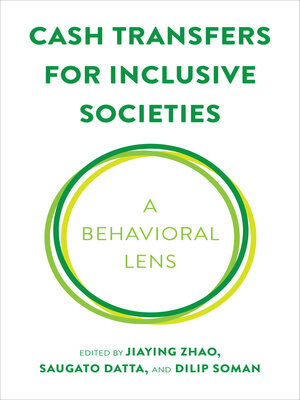Cash Transfers for Inclusive Societies
ebook ∣ A Behavioral Lens · Behaviorally Informed Organizations
By Jiaying Zhao

Sign up to save your library
With an OverDrive account, you can save your favorite libraries for at-a-glance information about availability. Find out more about OverDrive accounts.
Find this title in Libby, the library reading app by OverDrive.



Search for a digital library with this title
Title found at these libraries:
| Loading... |
The latest title in the Behaviourally Informed Organizations series offers practical advice on how best to successfully design, deliver, and evaluate efficient cash transfer programs, with a view to alleviating poverty.
While much progress has been made in reducing poverty worldwide – especially in the pre-pandemic era – it is fair to say that an unacceptably large proportion of the world's people still live in poverty. Cash Transfers for Inclusive Societies sheds light on the widely prevalent cash transfer programs. The book asks these central questions: What is the state of the art in the development of welfare programs? What do we know works in these programs and what does not? How can an understanding of behavioral science better inform the design, delivery, and evaluation of welfare programs?
The latest title in the Behaviourally Informed Organizations series, the book develops a nuanced framework for how governments, practitioners, and society in general should design cash transfer programs to improve inclusivity, reduce poverty, and improve equality. It draws on field experiments and case studies to showcase past successes, while also building frameworks and developing prescriptive advice that we can give to practitioners who are looking to design a behaviorally informed cash transfer program. With contributions from leading academics as well as seasoned practitioners, Cash Transfers for Inclusive Societies presents a new model to policymakers to study and shift the discourse on poverty alleviation from purely economic factors to also behavioral ones.






